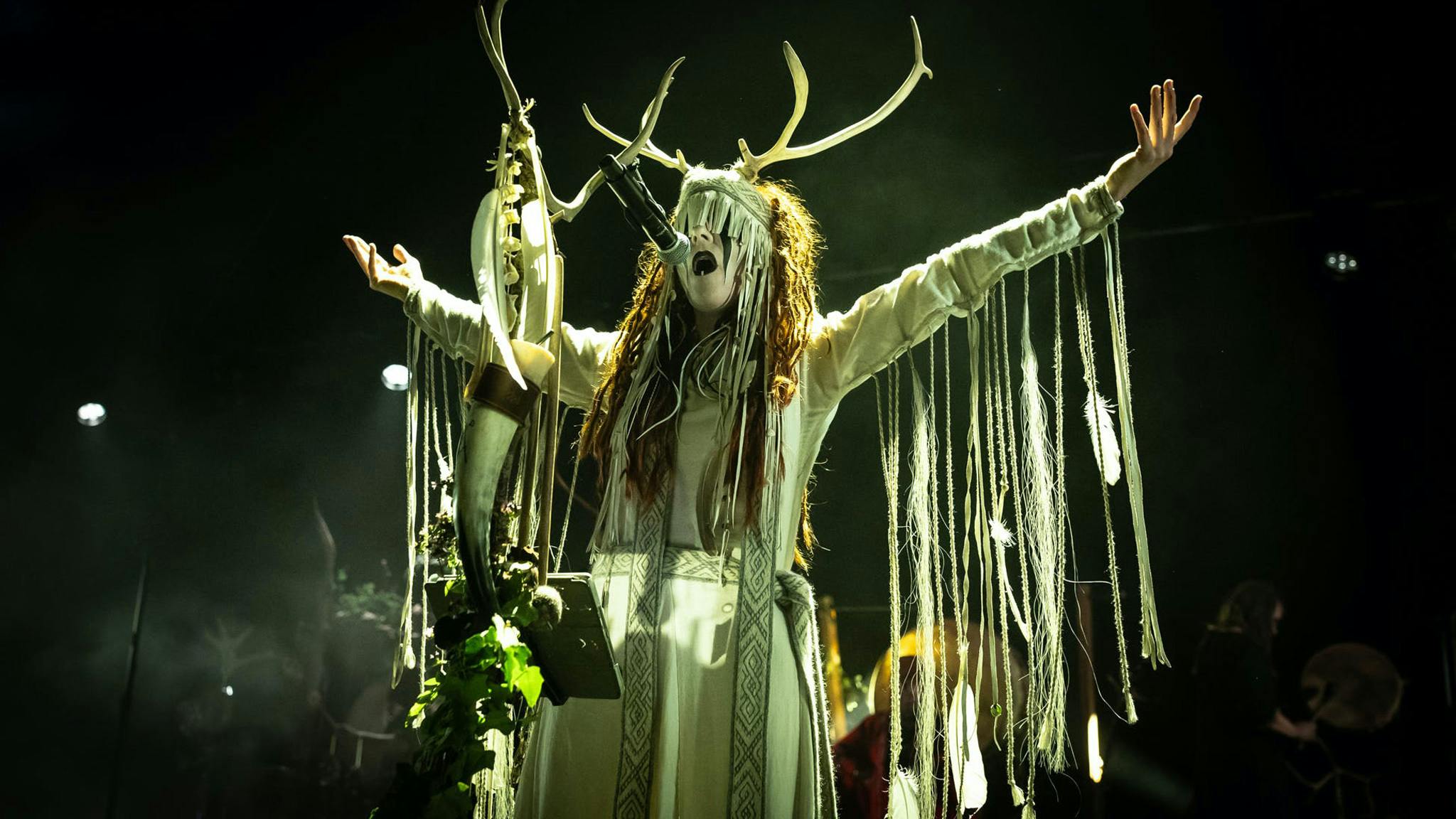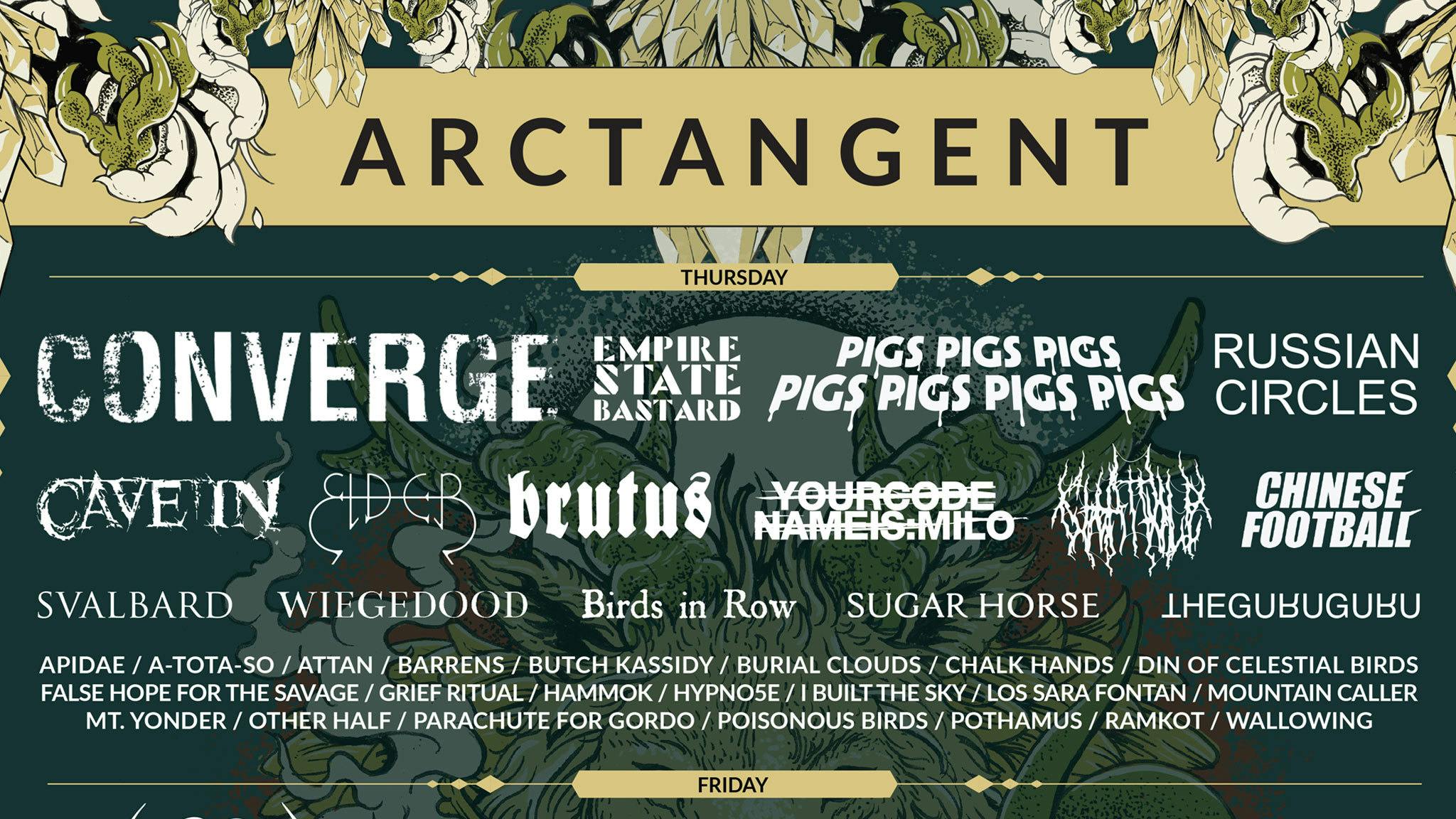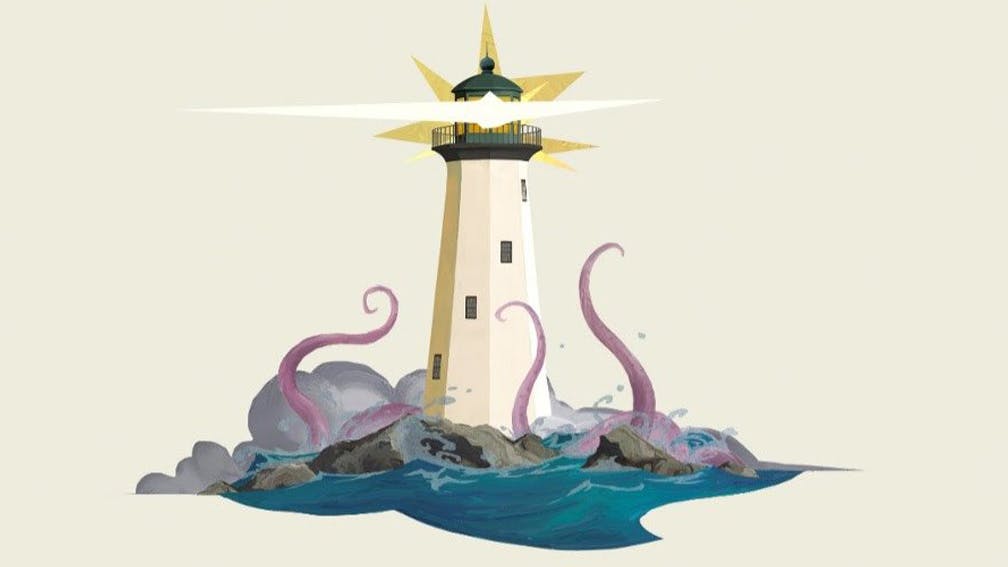There’s a couple of bits on there that have to be really direct nods to your influences. There’s a total Van Halen guitar lick that can’t have been by accident…
“I know the part you're talking about! The part that sounds like [VH belter] Jamie's Crying, right? PowerNerd is the first of four records that are connected to a theme, just like I did with Devin Townsend Project back in 2010. This one, from the beginning, I was viewing it as having reference points to my teen years. I loved dirt bikes and Motörhead and AC/DC and Def Leppard and Van Halen, and in a sense it was an homage to that in the beginning. But then, as again, these things are wont to do, by the time I got into it, I recognised that by referencing your teen years, you also start reflecting on your teen years, and it opened up a lot of cans of worms that I didn't know were there. So the guitar things that you speak of were definitely intentional.”
What’s the bigger concept behind it all, then?
“I had thought that some of these other records that I'm working on that follow this are so bloody complicated and sort of strange, that if we extend an olive branch to the audience by doing something that references things that I've done in the past, it would be simple and fun and straightforward – kind of a party record. But again, because when we were working on it, I was going through a bunch of shit with the family, loss of friends and loved ones, the record changed its theme entirely. It ended up being, I think, a way to process loss, grief and death, and things like this. I took those existing songs and then started to alter the lyrics and started to alter the intent so that it could act as a cathartic way for me to work through the process of grief. It's not a popular topic to adhere to simple party music. But I had no choice in the matter, because the original lyrics for it just seems so stupid in light of what had happened. I just sort of sunk into it, and I wrote what I felt about losing somebody.
“The record ended up being, in a very practical and tangible way, a mirror to a moment of depression that I've never actually experienced before. I've never gone through it to the extent that I went through it during the writing and the recording of this. And if anything defines the term PowerNerd, it’s that it got delivered, against all odds. I don't know if you've gone through those moments where you're just so levelled by the things that happen in your life that you think I can't do the work, where you go, ‘I can't finish this. I can't wrap my head around music or the value of it, I don’t understand what I’m hearing.’ But working through that process, the songs ended up mirroring the stages of it. You have the mission statement with the first song saying we're going to get through this. But then it sort of goes back to referencing my relationships in the past. And then in the song Glacier, it expresses a moment of like, ‘Okay, this is about death. This song is about losing somebody.’ And then the song Goodbye that follows, it is about acceptance of that.
“I've never actually sunk into grief in the ways that we were forced to, I guess. It was originally going to end with the song Goodbye, but I realised that as I've gotten older and post-pandemic, so much of the prerogative of the artists is to make the choice as to how you want records to end, how you want to leave people, and I didn't want to leave it on the note of just being devastated. The process of grief and getting through this sort of depression also includes the fact that these things don't last forever. There is another day ahead of you. So I ended the album with the song Ruby Quaker, which is a song about coffee, because I realised it was art imitating life. I had a friend come over one day, and he was like, ‘Man, you look fucking ruined. We should have a cup of coffee.’ There was a real sense in that moment of the tenacity to get through these moments, there is a light at the end of the tunnel. Ultimately, PowerNerd ended up being a representation of that process unexpectedly, because at first it was supposed to be about, you know, rock’n’roll and Motörhead or whatever.”
How do you feel listening to it now that there’s a bit of distance, and you’re not having to go through the process of making an album and deal with real life, and there’s been time to unknot things a bit?
“Well, I haven't had a chance to decompress. There's been no time yet to stop and just sit. However, I do recognise that we're on the mend. I got some help, which is something that I think a lot of times people also struggle with. I know that I do as well, because you think you're admitting weakness on some level. But I also recognise, as a result of this process, how many people depend on us for our strength to remain balanced. Whether it's your parents, kids, coworkers, friends or bandmates, the responsibilities that I have taken on in life require me to recognise when my mental health is no longer benefiting any of that. Taking those steps is important. I think the thing that I'll draw from this period is that it’s possible to work through a process that you don't feel you can get through. There’s a gratitude that I feel for the people around me that helped me in those moments. PowerNerd became a testament to that in a completely unexpected way.
“Having the presence of mind to be able to look around at how fortunate we actually are, even amidst the chaos and the depression, was invaluable. Even the song Gratitude, it's not meant to be ironic. It's not meant to be a printed-out slogan that you'd see in somebody's kitchen. It's a legitimate reflection on, ‘Yes, this is difficult, but the profundity of how incredible it is to be alive and to be in this time in history is important.’ Keeping aware of how fortunate we are is part and parcel of moving forward.”







